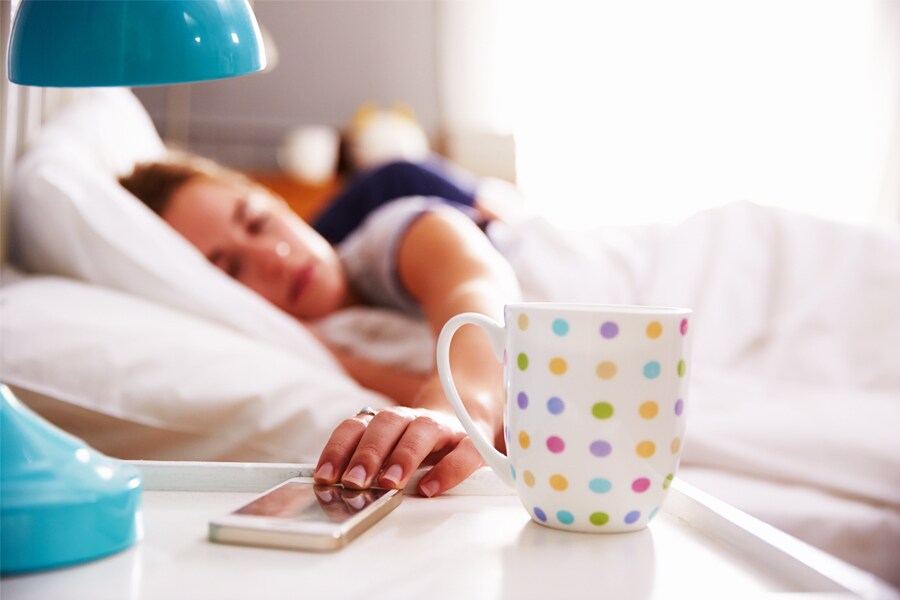
This is one morning habit that you should scrap
If you want to maintain optimal brain health, you should reconsider grabbing your phone first thing in the morning
 Looking at your phone as soon as you wake up predisposes you to be more distracted for the rest of the day. Image: Shutterstock
Looking at your phone as soon as you wake up predisposes you to be more distracted for the rest of the day. Image: Shutterstock
Many of us have an automatic reflex to grab our cell phone first thing in the morning upon waking. We scroll through social media feeds and reply to messages left over from the previous night. However, if you want to maintain optimal brain health, it's a habit that should be reconsidered.
According to a survey from Reviews.org, over 88% of Americans say they check their phone within the first 10 minutes after waking up. So what is everyone doing on their phones so early in the morning? Browsing social networks, replying to messages from friends or catching up on the news... but what impact does this habit have on our health?
On TikTok, American neuroscientist Emily McDonald, followed by a vast community of 400,000 subscribers, regularly dispenses advice on how to take care of our brains on a daily basis. And this includes banishing bad habits, such as checking your smartphone in the morning. In a video viewed over 15 million times, titled "3 things I avoid to protect my brain" the TikToker explains: "Whenever you wake up in the morning your brainwaves transition from theta to alpha. This means that our subconscious mind is in a more programmable state. The content that you consume during this time will have a greater impact on your mindset. And messes up our dopamine for the rest of the day so that we continue to check our phones." Dopamine is a neurotransmitter hormone that is activated in our brains as a kind of reward center, giving a sense of pleasure.
Checking social networks first thing in the morning can impair our attention span throughout the day. Which is why, in another video, Emily McDonald advises turning off our notifications: "Notifications are designed to trigger your brain into a stimulus response behavior so that when the notification lights up your screen you click it and go to social media without a second thought." The neuroscientist also urges us to "limit scrolling" through news and feeds on your phone. She cites a study suggesting that heavy scrolling was linked to psychological distress, which could lead to decreased life satisfaction and mental well-being.
Screens have become an integral part of our daily lives, by our side throughout the day, and their intensive use may be having an indirect effect on our cognitive abilities. According to a Samsung study dating from 2020, our attention spans have dropped from 12 to 8 seconds since 2000, at least when listening to music. What's more, doomscrolling through news has been linked to anxiety and depression in a study conducted by Texas Tech University. To help counter this, it's advisable to avoid using your smartphone the very moment you wake up. For example, Emily McDonald advises turning off notifications at night to avoid being tempted to check them. Instead, she recommends focusing on yourself with positive affirmations and light physical exercise as a bedtime routine.






